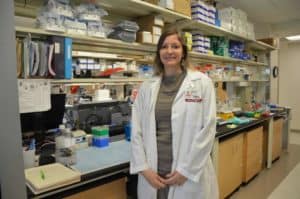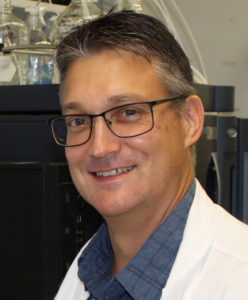Congratulations to Dustyn Barnette who successfully defended his Ph.D. dissertation entitled “Determining Metabolic Pathways to Liver Toxicity for Multiple Drug Classes Through Integrated Computational and Experimental Techniques” on September 10th. Dustyn was a student in the laboratory of Dr. Grover Paul Miller and is now a post-doctoral fellow at the National Center for Toxicological Research under the direction of Dr. Qiang Shi. A summary of his work is below.
Idiosyncratic adverse drug reactions (IADRs) present a challenge for drugs during development and after marketing. Drug bioactivation by liver xenobiotic enzymes is a prominent mechanism behind IADRs, often resulting in drug-induced liver injury. Avoidance of structural alerts is the common practice used in drug design to minimize bioactivation, but the strategy is prone to false predictions. A deeper mechanistic knowledge of drug bioactivation mechanisms, though requiring more resource-intensive strategies, can lead to safer drug design and clinical use. Herein, I used a strategic combination of investigative methodologies to study and elucidate bioactivation and detoxification pathways of drugs on and off the market. Multiple deep-learning neural network models provided high-throughput and efficient predictions of drug metabolism and analysis of patient data. These were complemented with in vitro experiments using enzyme systems to conduct kinetics analysis and phenotyping for targeted study of metabolism for specific drugs. My application of these techniques focused on two types of drug bioactivation. First, a study of the antifungal terbinafine identified a multi-pathway and multi-step series of N-dealkylations leading to formation of a reactive aldehyde. The complex pathway was catalyzed by seven different P450s, possibly explaining the difficulty of predicting liver injury in patients. Second, a comparative study of thiazole epoxidation for the never-marketed sudoxicam and its safer marketed derivative meloxicam identified multiple mechanisms by which thiazole substituents can determine toxicity risks, affecting both bioactivation and detoxifications pathways. Varied enzyme specificity for the different pathways implied a major role for enzyme affinity in determining bioactivation outcomes. Overall, newly gained mechanistic knowledge for specific drug bioactivation was achieved by leveraging the strengths of two different investigational approaches, each of which informed and improved the other. These findings deepen our understanding of how structural alerts translate to risks of liver injury. Newly discovered promising targets for identifying toxicity predictive factors in patient data offer exciting opportunities for future studies of clinical outcomes for these and similar drugs.






